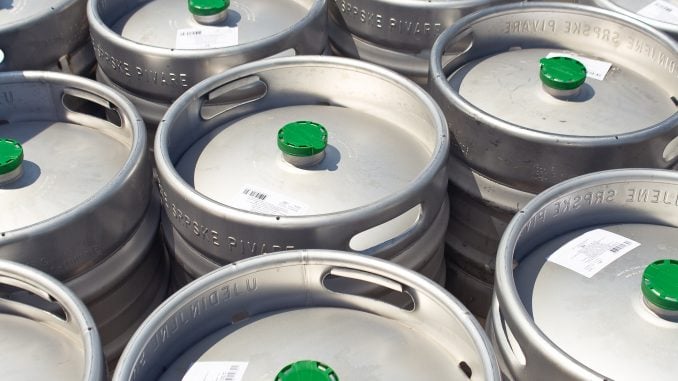
In a highly-competitive beer industry with more than 5,000 U.S. beer companies, a handful of N.C. brewers now want to stack the deck in their favor at the expense of everyone else.Their legislative initiative to radically increase self-distribution is unfair, anti-competitive and creates an unlevel playing field when it comes to interstate commerce.We already have the most permissive craft beer laws of any state from Virginia to Texas. Those laws were created in the last decade to encourage startup breweries a chance to have access to market. Among those is the privilege to self-distribute 25,000 barrels of beer, an amount equal to 8.26 million bottles.Why is it unfair to increase that number from 25,000 to 60,000, 100,000 or more? More than 90 percent of the N.C. craft brewers produce 7,000 barrels or less. They can already self-distribute. On the other end of the spectrum, every regional or national brewer in America already has a network of distributors.This is “self-interest” legislation being championed primarily by two Charlotte breweries. They were among the first brewers in Charlotte seven years ago. Today, there are 30 in the Charlotte area plus there is now increased competition from regional and national brands. The proponents of increased self-distribution now want to change the rules that helped make them successful while they squeeze out their competitors.Independent beer distributors provide a pathway to market for dozens of N.C. startup craft brewers under North Carolina’s three-tier distribution system of brewers, distributors and retailers.In sharp contrast to assertions made in a recent North State Journal opinion piece (“Mandated middlemen hurt local breweries,” Feb. 25), the current distribution system is a big success. Six years ago, we had 59 breweries in North Carolina. Today, that number is 179 with more on the way. Western N.C. is the East Coast home for three of the largest craft brewers in the U.S.Independent beer distributors have helped fuel the craft beer explosion.”The current open structure of the three-tier distribution system has been a fundamental enabler of growth in the craft beer segment,” according to the Boston Consulting Group, a business research and analysis firm.Independent beer distributors invest millions of dollars in specialized warehousing, storage, handling and transportation not to mention state-of-the-art, data-driven logistics, dispatch and order management to maximize efficiency and save costs saving both brewers and consumers money. N.C. beer distributors provide full-time employment to 4,000 individuals in solid-paying jobs with benefits, creating a $1.9 billion total economic impact in our state.Independent distributors also have devoted years and years to building and maintaining relationships with retailers and establishments in their local communities. Those hard-won relationships mean distributors can introduce craft brewers’ products into a brutally competitive market with limited space on shelves and taps not to mention offering support to new brands with cutting-edge marketing, promotion and public relations.Independent beer distributors and the three-tier system are the small brewers’ protection against giant producers, who would otherwise be in a position to strong-arm retailers not to sell other beers, or to select certain outlets for their products at the expense of others.The U.S. Department of Justice agrees, recently writing that, “[e]ffective distribution is important for a brewer to be competitive in the U.S. beer industry.”It’s easy to talk about being in favor of a “free-market” but alcohol is different. It is a regulated and highly taxed substance which can cause great harm if not handled responsibly. The proponents of increased self-distribution are being highly selective when it comes to “freedom.” They like it most when it works to their advantage and excludes others.Tim Kent is executive director of the N.C. Beer & Wine Wholesalers Association, a Raleigh-based trade organization representing 28 family-owned member companies and 5,600 employees.



